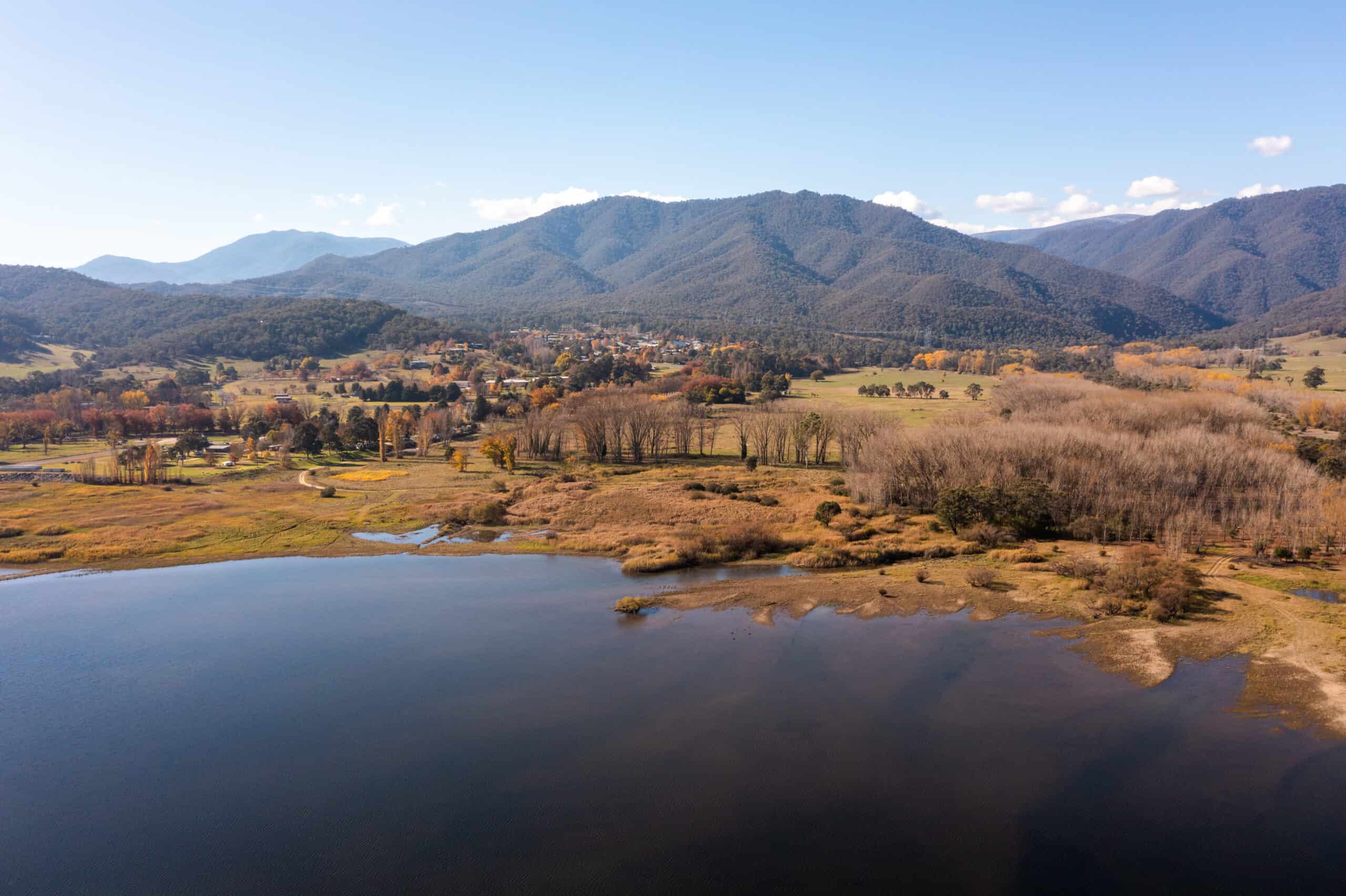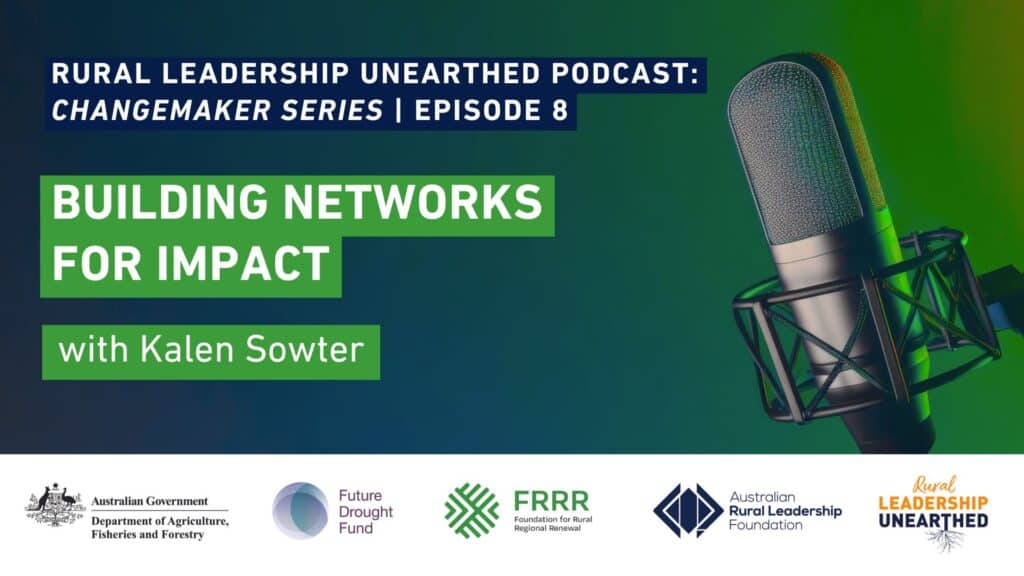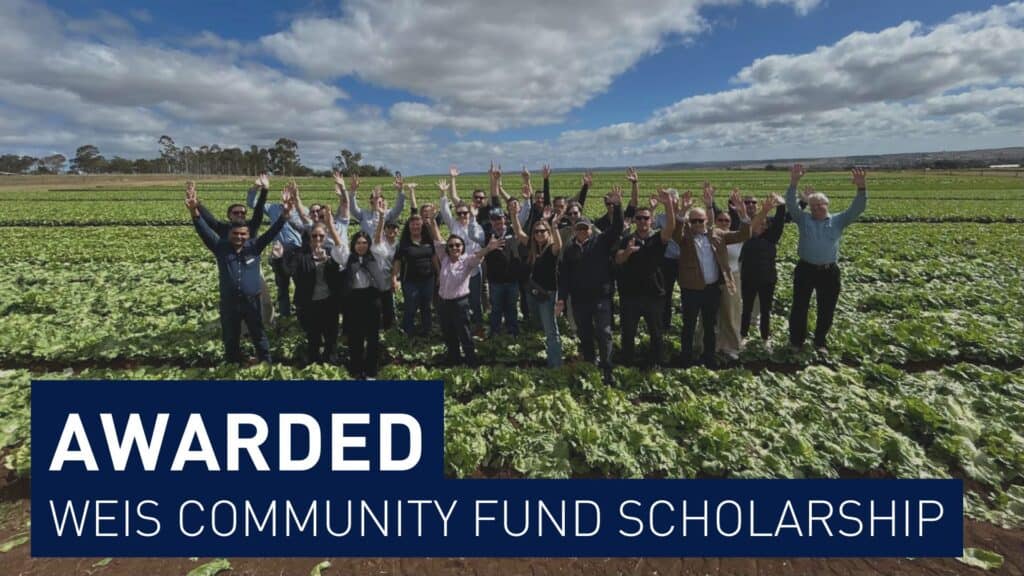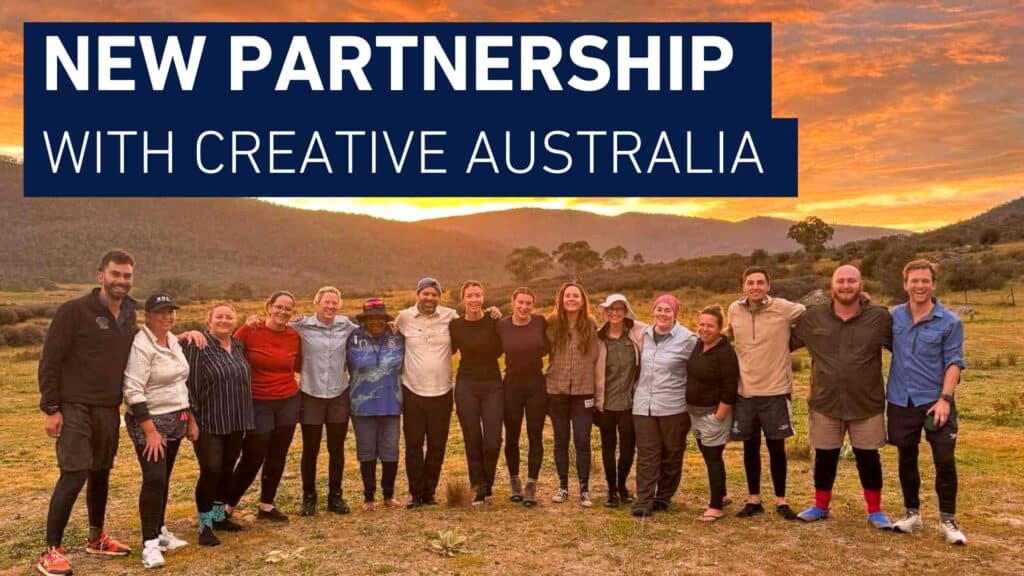We’d all like to think we have the capacity to bounce back and cope after a disaster or crisis but the truth is that no individual or community is totally immune to the impact of major and devastating events.
The Snowy Valleys region of NSW is one area that has experienced a string of events that have impacted its communities. Drought, bushfires, floods and the pandemic have had a compounding effect.
When natural disasters occur it’s important to consider who rebuilds the social fabric of a community after the emergency crews have gone. Who regenerates and rejuvenates a town so it can revive and thrive? It’s undoubtedly the community and the individuals within it.
Building community resilience (the capacity to recover quickly from unexpected change) requires leadership within the community as well as community-borne initiatives that will create opportunities for positive change. The Australian Rural Leadership Foundation (ARLF) recognises this and, with support of its funding partners, has taken its knowledge and expertise directly into regional communities to help build their capacity to deal with the aftermath of disasters.
In late 2022 the ARLF’s Regenerate Regional Leadership Program in the Snowy Valleys brought together a diverse group of local community members for an intensive group-based learning program.
Mellissa Harley: Gaining Leadership Skills to Support Mental Health Recovery
For Tumut-based social worker and bushfire recovery specialist, Mellissa Harley, the program was an opportunity to gain quality leadership-focused training.
“I’ve done courses on how to be a manager but a manager and a leader are two very different things,” Mellissa says.
“The course gave me a fuller appreciation of how good leadership brings people along on the journey. It’s about working out where we want to head and how we’re going to get there together. Leaders empower people and recognise people for where they’re at and support them to where they want to go.”
As the head of the community mental health, drug and alcohol team Mellissa knows that her staff, and the people she helps, rely heavily on her in times of crisis. Good leadership is vital as, if her team is functioning well and appropriately supported, they’re better able to support their community.
“The course gave me the space to reflect on the type of leader I want to be. I want to be a good role model for my staff and community and one of the concepts the program brought home to me was around letting go as a way of looking after yourself so you can better look
after others. It’s okay to step out of a complex situation if you need to, then access support and regroup so you can then step back in.
Mellissa adds that the course gave her the chance to think about what really drives her.
“I want to make sure my community is getting the services they need and since doing the course I’ve been leading our efforts to raise our profile so people know where to access support when they need it and feel comfortable doing so. I’ve been working to broaden our reach and build our capacity by linking in with other similar services in the region.”
Mellissa’s says that in times of disruption or disaster communities often turn to government agencies and services for help so by creating a major locally-based team of mental health clinicians she can better respond to those needing immediate support.
“The creation of a network with government and non-government agencies will put me in a much better position to link people with services so they get faster and better assistance.”
And Mellissa knows that having this capacity will help the community (and individuals) to recover faster from life changing events.
Strengthening Community Connections for Long-Term Resilience
Fellow participant, Shelley Neil, is a strong believer in the importance of building community connections in the aftermath of a disaster.
“It’s okay to rebuild something that’s going to make the community feel better for 12 months but how are you going to make people feel better for 10 or 15 years?” Shelley says.
“It’s got to come from within the community. We can’t rely on outside help all the time.”
Shelley lives in the small town of Khancoban and works remotely for a national travel agency while also helping out at the local general store and running her own home-based business, The Khancoban Kitchen. She holds great passion for her tight knit community and says she feels a strong sense of belonging and pride for where she lives.
“Where else in the world can you live near the foot of a continent’s highest mountain and the head of the largest river.”
Like Mellissa, Shelley feels she also now has greater ability to respond to challenging situations and believes she’ll do so in a far calmer manner since attending the ARLF program.
“I’ll be more aware of what people are doing around me and able to work out where I fit into the system or where I can help others fit into the system. The program taught me about being more conscious of other people’s situations. When people come to me with a certain problem I’m now actively thinking about why this particular person came to me about this particular problem. Do they need direct help from me or do they need my help to find someone to help them? I’m more conscious of asking those kinds of questions and didn’t do that before the course.”
Shelley is also the treasurer of the Khancoban Events Committee and says her involvement is just one way she can give back to the community that she loves so much. She wants her community to feel connected and hold the same strong sense of pride that she has for where they live. She’s very aware of how this will help the community stick together in the face of adversity.
“We live in a pretty isolated area so community events are extremely important for bringing people together during tough times and for building connections. Community events lift people’s spirits and boost our local economy by bringing people to the area.
“I’ve run a few events since the course and what I learnt certainly helped me. I’ve also found I respond differently when people make suggestions about events. Rather than saying, ‘Hey that’s not going to work’ I’m more likely to say, ‘Let’s do it. If it works, great and we’ll do it again. If it doesn’t work, well we’ll just try something else’.”
Shelley adds that the course gave her the chance to meet new people, foster friendships and build alliances and says this is incredibly valuable because, “when you’re trying to achieve something for the community things are easier, and happen faster, when you have a network of people you can call on for help.”
Danielle Leseberg: Embracing New Roles to Contribute to Community Resilience
Danielle Leseberg was another participant in the program and says the course had a huge impact on her. Danielle, who lives in the tiny town of Jugiong, had been a police officer for 22 years but has since resigned from that job as the course gave her confidence to step away and do something else she was passionate about.
“I live in the best little village there is and just being on the course, and talking with the other participants, made me realise there’s more I can contribute to my community,” Danielle says.
Since completing the course Danielle has decided to increase her volunteering with the NSW Rural Fire Service. She’d already been helping her local brigade but is now more aware of the important role she can play.
“The course really clarified for me that, even though I didn’t hold a leadership title with the RFS, I was still leading people without fully realising it. I think I’ll be more level-headed during emergencies now as I’ll be confident enough in my leadership skills to help other leaders do what they need to do and help people prioritise what needs to be done. I also learnt how to be a better listener as learning to listen is a big part of learning to lead.”
Danielle has also signed up as a committee member of the Jugiong Advancement Group saying that she wouldn’t have put her hand up to be a committee member for anything before the course.
“I wasn’t as willing to take those steps but I am now because I have more confidence to be involved in what my community considers important. I want to help protect what we have and help my community get back on its feet. If you don’t have that ability, you just give in and curl up in the corner.”
Empowered Leaders Ready to Assist in Community Recovery and Resilience
All three of these participants say their new found knowledge will increase their ability to help their communities recover from challenging events and disasters. They understand that community resilience requires leadership from within and what they’ve learnt has not only empowered them to become stronger leaders but they’re now better equipped to assist those already in leadership roles while supporting others to demonstrate leadership. They now know that the journey to recovery and the creation of community resilience is one in which they can play a valuable part.
The Regenerate Regional Leadership Program – Snowy Valleys was jointly funded by the Australian and NSW Governments under the Bushfire Local Economic Recovery Fund. It was also supported by the Minderoo Foundation – Fire and Flood Initiative.
The program’s aim is to create enduring benefits for communities via a group of people who can lead, inspire and navigate transformational change.





